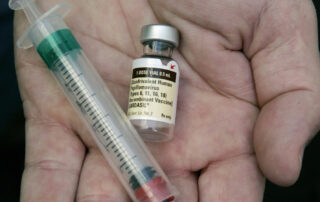Cancer experts warn about wave of HPV-related cancers in adults
Source: www.eurekalert.org Author: Ohio State University Wexner Medical Center Experts are concerned about rapidly rising rates of HPV-related throat and mouth cancers, noting that if this trend continues they could quickly be among the most common forms of cancer in adults between ages 45 and 65. Recent estimates suggest that middle throat cancer (known medically as oropharyngeal cancer) may become one of the top three cancers among middle-aged men in the United States by 2045, and the most common form of cancer among elderly men in the next 10 years. According to Matthew Old, MD, a head and neck surgeon at The Ohio State University Comprehensive Cancer Center – Arthur G. James Cancer Hospital and Richard J. Solove Research Institute (OSUCCC – James), this rise of middle throat cancers in this age group is due to the direct impact of human papillomavirus (HPV) infection before modern vaccines were introduced in 2006. HPV is a large group of viruses spread through skin-to-skin and oral contact that occurs during sexual activity. The virus spreads easily, and an estimated 98% of the population has been exposed to it. HPV can remain dormant for decades. High-risk strains of the virus have long been linked to increased risk of cervical cancer; however, data from the past decade shows high-risk HPV is also strongly linked to cancers of the head and neck (mouth, base of tongue and throat). In 2006, Gardasil introduced an HPV vaccine, which is administered in youth between the ages of 9 and [...]

